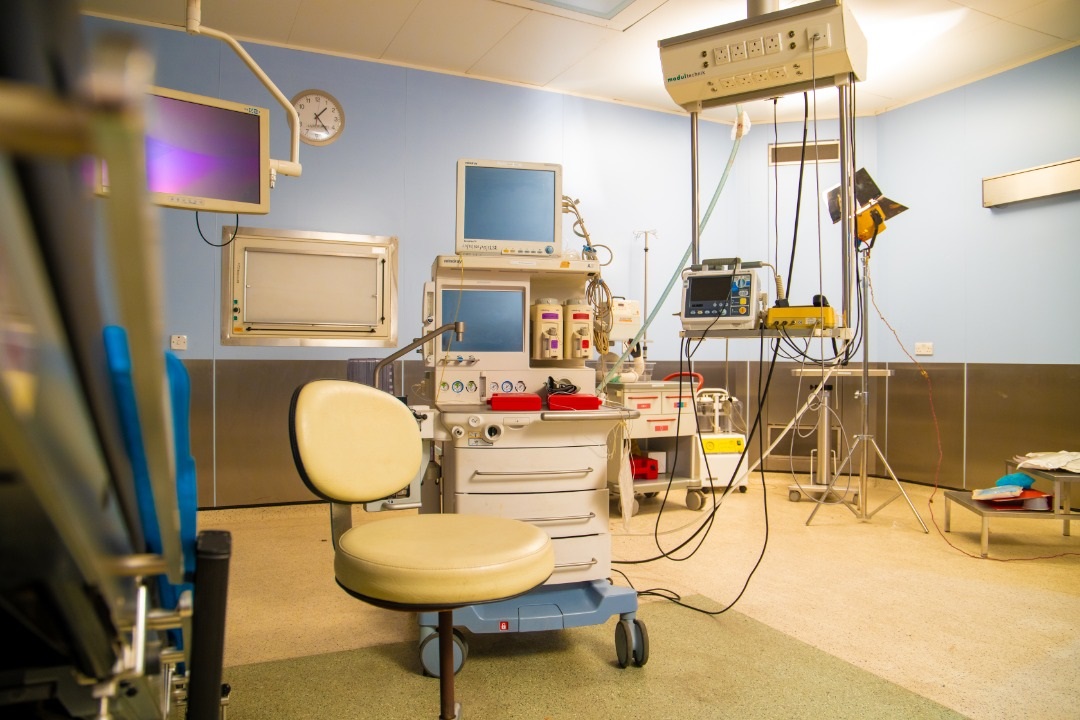
• To establish medical manufacturing industrial hubs
The Federal Government has expressed commitment to improving the investment environment, and access to funding for Original Equipment Manufacturers (OEMs) and other private sector health entities to facilitate local production, as well as assembly of medical equipment, essential medicines, and consumables in the country.
In addition, the government plans to establish Medical Manufacturing Industrial Areas with prioritisation of the secondary factors of production to improve the ease of doing business in medical manufacturing for the private sector.
Special Adviser to the President on Health, Dr Salma Anas-Kolo, who disclosed this during an interaction with journalists, stated that one of the priority areas of the present administration is to ensure local manufacturing of drugs and medical equipment, adding that efforts are ongoing to attract investments to tackle the skyrocketing prices of drugs.
Anas-Kolo said the government will also implement strategic purchasing methods including direct sourcing from OEMs, equipment leasing, and other private sector commitment initiatives toward increasing the investment in health service delivery and ensuring value for money spent on services.
She noted that the present administration is pursuing a comprehensive and integrated health service delivery, scaling up the service-ready facilities across all levels of care to two primary healthcare facilities in each ward, and one standard and fully equipped secondary health facility in each senatorial district, and one standard and fully equipped tertiary health facility in each state with regional quaternary care hubs/geo-political zone.
According to her, the government will implement a standardisation and accreditation exercise for all health facilities (public and private), institute decentralised management of services and supervised autonomy for public sector facilities receiving health insurance payments and commence a phased reprioritisation of capital expenditure in the health sector for output-based payments in facilities delivering health services.
The presidential aide also said that the government plans to reduce the maternal mortality ratio from 512/100,000 live births by 35 per cent reduce the total fertility rate from 5.4 by 20 per cent and reduce the neonatal mortality rate from 38/1,000 live births by 40 per cent, as well as bring down the infant mortality rate from 67/1,000 live births by 40 per cent and under-five mortality rate from 132/1,000 live births by 25 per cent.
She observed that Nigeria has continued to underfund the health sector, as current health spending accounts for 3-4 per cent of gross domestic product. “The state of the health sector in Nigeria is intricately tied to its future economic potential. As it stands, Nigeria’s population is characterised by a high dependency ratio, a fast-growing population, and a slow reduction in maternal-child mortality and the likelihood of achieving a possible demographic dividend is low.
“Investing in cost-effective health-promotion policies and interventions, which have extremely high cost-benefit ratios and offer clear political benefits, can accelerate Nigeria’s delayed demographic transition. Universal health coverage, with its attendant scale-up of high-impact public health interventions, will put Nigeria back on track to reap a dividend from its favourable population age structure,” Anas-Kolo said.
According to her, President Bola Ahmed Tinubu has promised to increase his political commitment towards financing health by ensuring health appropriations are 10 per cent of total government expenditure for the next four years, while the current fiscal space for health service delivery would be expanded by earmarking sugar-sweetened beverage tax and other pro-health taxes, telecom tax, and Value Added Tax (VAT) for the health sector.
She recalled that the president has committed to increase national health insurance coverage from 1.5 million to 50 million Nigerians by 2027 by expanding the Basic Health Provision Provision Fund (BHCPF) from one per cent CRF to 2 per cent Federal Account Allocation Committee (FAAC) and Other sources.
On human resources for health, she stated that efforts are ongoing to increase the stock of health workforce by expanding current investment levels in medical education and incentivising private sector participation in training.
Anas-Kolo noted that the administration intends to improve the remuneration and welfare benefits of the health workforce towards ensuring workplace motivation, as well as a commitment to delivering quality health services to Nigerians.
On public health emergencies, preparedness, and response, she said: “We want to address gaps in biosecurity legislations including issues associated with the establishment of molecular laboratories, investment and delivering laboratory infrastructure with linkages to tertiary services and centres of excellence for infectious diseases.
“Also, we want to institute and strengthen a National Public Health Laboratory System based on a hierarchical structure for national and subnational laboratory infrastructure and resources. We want to modify the Nigeria Centre for Disease Control (NCDC) to deliver its key mandate to ensuring the health security of Nigerians and exploring the international economy on bio-banking and information sharing on highly infectious pathogens and diseases of public health importance.”
She said the government is promoting two standard primary healthcare facilities in each ward in the local government and equipping them with drugs, infrastructure, electricity, water supply human resources, and security to enable women to access antenatal care services, delivery services, postnatal care services and immunisation for children under five years.
Anas-Kolo stated that the government wants to accelerate the reduction of maternal deaths at the national and sub-national levels, stressing that Abia State is one of the states that constitute the highest burden of maternal deaths in the Southeast, while Sokoto contributes the highest burden in the Northwest, and Ondo has the worst indices in the Southwest.
She said the government is engaging with state governors, stakeholders and community leaders to address the problems. “Government through the BHCPF intends to procure basic equipment that would be used to save the lives of the newborns across the country.
“We need to promote home-grown identifications and solutions to tackle these problems. The president is deepening financial commitment to the underfunded health sector despite the economic situation in the country,” she added.






